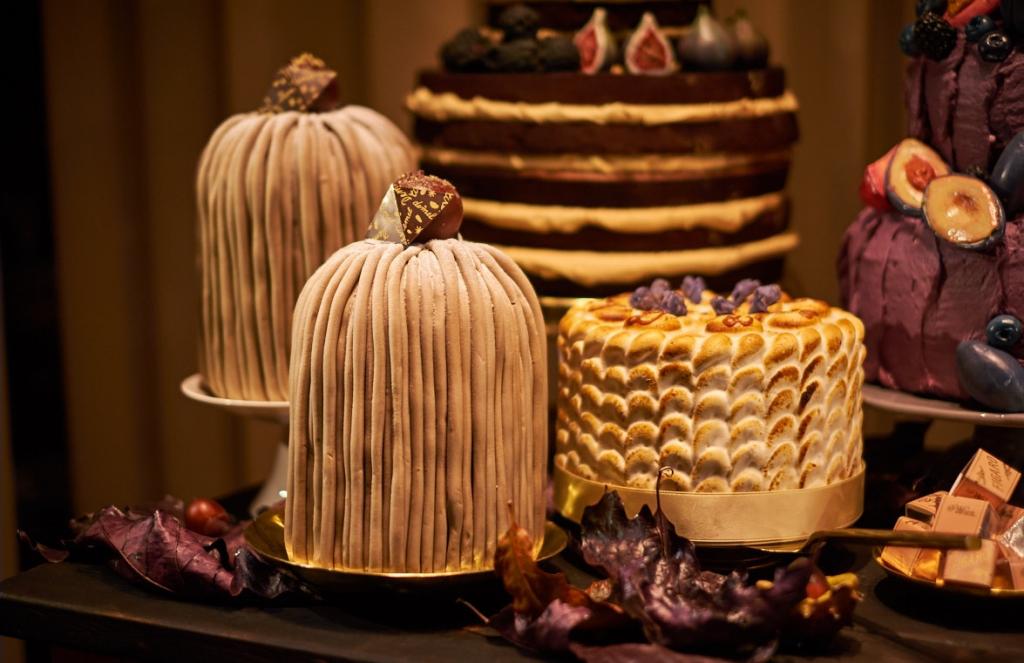Thessaloniki gets ready for its metro launch in November
The underground rapid transit lines have been under construction for almost two decades due to various project delays
 TheMayor.EU logo
TheMayor.EU logo 
A contemporary selection of Demel's confectionary and more, Source: Demel Imperial and Royal Confectionary
Some shops have stayed open for more than six generations of the same family and trace their origins to the Austro-Hungarian Empire
Yesterday, the Austrian Commission for UNESCO (ÖUK) listed traditional Austrian chocolate makers as Intangible Cultural Heritage in the national heritage register due to their years of shaping local and global confectionary practices. Many small businesses in the country can trace their practices back to the days of the Austro-Hungarian Empire and have passed chocolate crafts for generations in small family-owned businesses.
The Austrian Confectionary Guild has also said that all master confectionery chefs will get a heritage label that they can proudly display in their shops, as the ÖRF reports. The label will help both customers and master craftsmen distinguish themselves.
According to an official statement, the craft requires precision in execution as well as creativity and adaptation. The ingredients and the traditional processing and processing methods using a wide variety of tools have hardly changed over the centuries and have nevertheless remained contemporary in their result.
The craft of confectionery in Austria has several origins: the tradition of bakery, the aristocratic court kitchens and the large hotel kitchens. Due to the falling price of sugar since the 19th century and the growing popularity of a wide variety of pastries, the craft became widespread and anchored in Austrian (food) culture.
Many cafes and confectionery shops in Austria still bear the k.u.k mark which stands for kaiserlich und königlich (English: imperial and royal). Oftentimes, these establishments have remained family-owned businesses, passed down through generations.
One such business is the Imperial and Royal Court Confectionery L. Heiner (k.u.k. Hofzuckerbäckerei L. Heiner). The establishment has been open since 1840 and has continued to be a family-owned business for 6 generations.
Michel Stuller, master confectioner at the L. Heiner chocolate shop invented the Kardinalschnitte, reported Wien heute, a recipe which is now a staple of local pastry shops.
Another famous pastry shop is the Demel Imperial and Royal Confectionary (K. u. K. Hofzuckerbäcker Demel), in business since 1786. This establishment is famous for preserving an authentic imperial interior in a rococo style from Portois & Fix - a famous Austrian Imperial furnishing company.
Demel’s used to supply Hofburg palace in Vienna, and Emperor Franz Josef I himself, who apparently had a sweet tooth since childhood. After the Austrian Monarchy was dismantled, the establishment’s first female owner in 1957, Anna Demel, decided to keep the traditional decoration, harkening back to a more classic period for the Austrian capital.
This has now become part of the Demel brand, which gives guests the opportunity to both taste and relive La Belle Époque.

The underground rapid transit lines have been under construction for almost two decades due to various project delays

Now you can get your wine in Talence by paying directly in Bitcoin

That’s because the state has to spend money on updating the railway infrastructure rather than subsidizing the cost of the popular pass

Rethinking renewable energy sources for the urban landscape

The examples, compiled by Beyond Fossil Fuels, can inform and inspire communities and entrepreneurs that still feel trepidation at the prospect of energy transition

Now you can get your wine in Talence by paying directly in Bitcoin

The 10th European Conference on Sustainable Cities and Towns (ESCT) sets the stage for stronger cooperation between the EU, national and local level to fast track Europe's transition to climate neutrality.

At least, that’s the promise made by the mayor of Paris, Anne Hidalgo

The underground rapid transit lines have been under construction for almost two decades due to various project delays

At least, that’s the promise made by the mayor of Paris, Anne Hidalgo

Hostal de Pinós is located in the geographical centre of the autonomous region

Despite its church-y name, the district has long been known as the hangout spot for the artsy crowds

Urban dwellers across the EU are having a say in making their surroundings friendlier to people and the environment.

Forests in the EU can help green the European construction industry and bolster a continent-wide push for architectural improvements.

Apply by 10 November and do your part for the transformation of European public spaces

An interview with the Mayor of a Polish city that seeks to reinvent itself

An interview with the newly elected ICLEI President and Mayor of Malmö

A conversation with the Mayor of Lisbon about the spirit and dimensions of innovation present in the Portuguese capital














